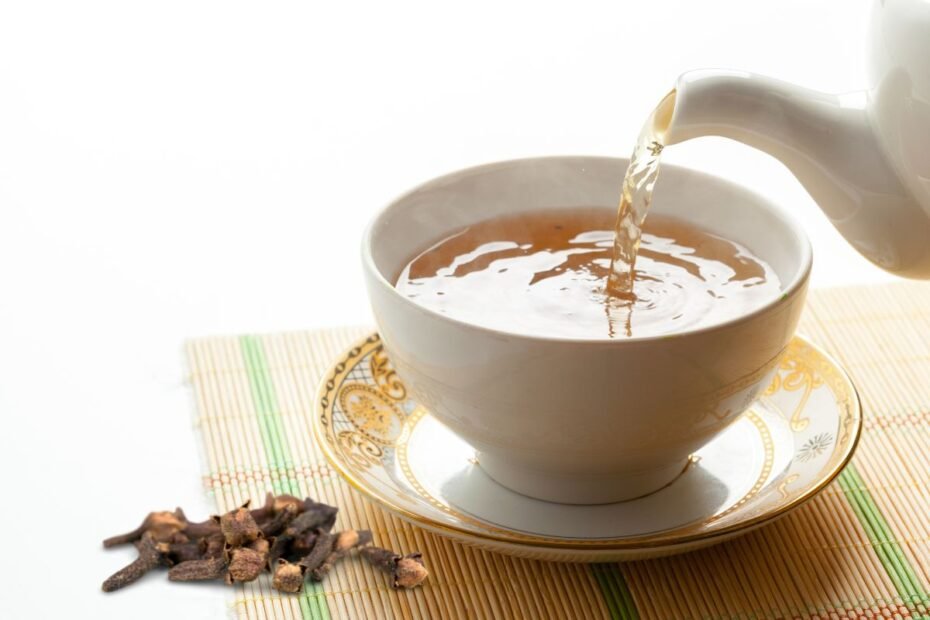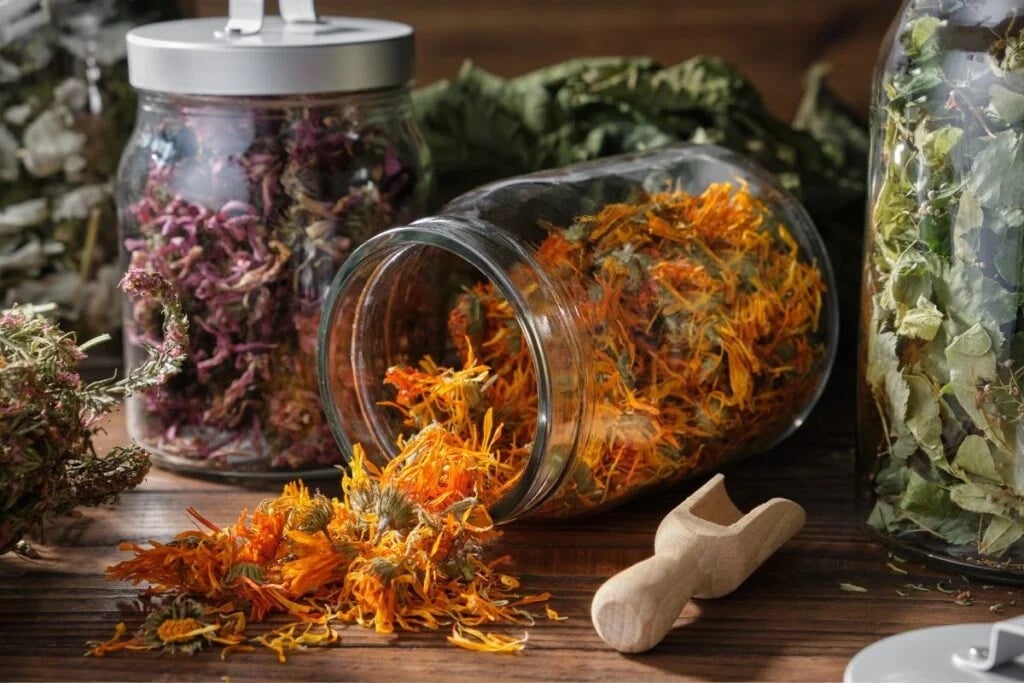There are many different recipes for the proper preparation of clove tea. People prepare the drink with aromatic ingredients such as cinnamon, ginger, cardamom, orange, or lemon. Clove tea is a fragrant tonic drink that helps you warm up on a cold day and improve your health. People have appreciated the clove tea benefits or the spice alone for a very long time. And they are still enjoying it today. It is important to note that this versatile spice is not suitable for everybody due to its distinctive taste and properties. Pregnant or breastfeeding women, children under two years of age, and people with persistently high blood pressure should strictly avoid the clove due to its side effects.
Cloves—What Are They?
Cloves are the undeveloped flower buds of the clove tree. It is widely known as a very fragrant spice. About 15% of the composition of cloves consists of essential oils. Chinese have used this spice with a particular smell and taste since 2500 years ago. Arab merchants brought it to Europe, as far back as the Roman Empire. Cloves are used as a spice to flavor dishes. Folk and traditional medicine and perfumery use essential oils. They are used to brew tea with healing properties and to make infusions and decoctions. Indonesia, Zanzibar, Madagascar, and India harvest the most cloves.

Clove Tea Benefits Based on Scientific Research
Cloves are familiar as a spice. Few people know how they can make a delicious tea from these tiny buds. It surprises you with its taste, even though clove tea benefits your body. Clove tea is an effective remedy for colds, coughs, and various inflammations. Scientists presented several studies that show the benefits of cloves to our bodies. To find out more about why you should drink clove tea.
Beneficial Substances in Cloves
Cloves contain fiber, carbohydrates, vitamin K, and manganese. It means you can get beneficial nutrients from them. For example, manganese is an essential mineral for brain function and bone strength.
Cloves are rich in antioxidants. These substances reduce oxidative stress, which determines the development of chronic diseases.
Scientists say that cloves contain eugenol. It is five times more effective at stopping oxidative damage than another potent antioxidant. Including cloves in your diet and other antioxidant-rich foods can help improve your overall health.
Clove Tea Against Cancer
Some research suggests that compounds in cloves may help protect against cancer. It is one of the most clove tea benefits. One such study was carried out in a test tube and showed that clove extract helped to stop the growth of tumors and promoted the death of cancer cells.
Similar results were observed in test-tube studies using highly concentrated clove extract and oil. Concentrated clove oil caused 80% of oesophageal cancer cells to die and induced cervical cancer cells to die. Of course, it is crucial to mention here that the high levels of eugenol contained in cloves are toxic, and an overdose of cloves can cause liver damage, especially in children. Therefore, further research is needed to determine whether lower doses of cloves can affect people with cancer.
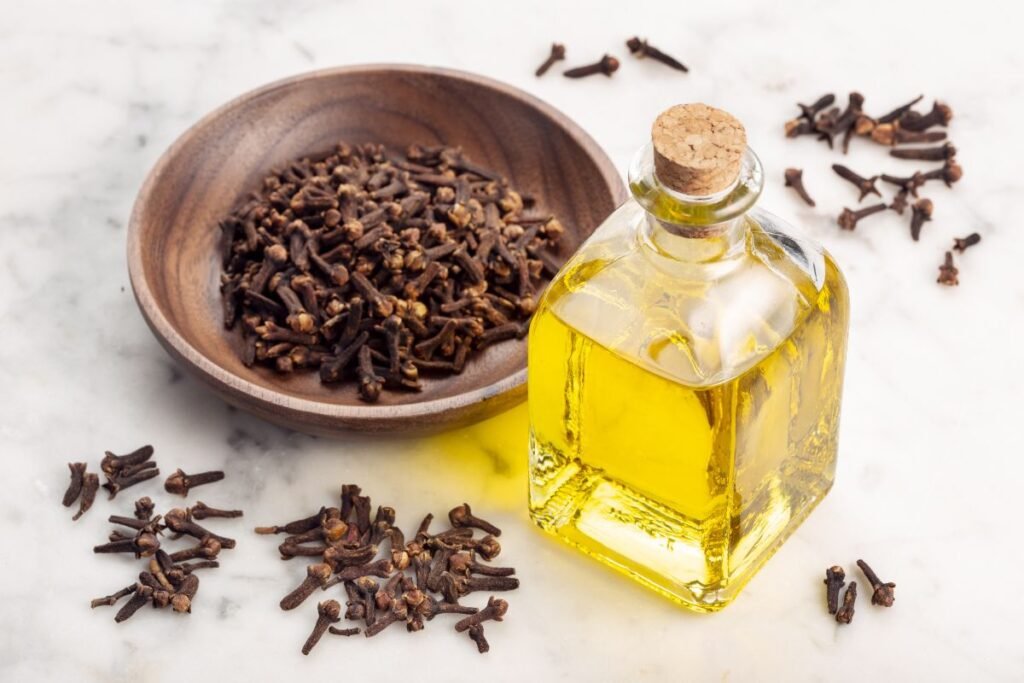
Cloves Can Kill Bacteria
Cloves, as well as clove tea, have been shown to have antimicrobial properties, i.e., they can help stop the growth of microorganisms such as bacteria.
One test-tube study showed that the essential oil in cloves successfully kills three common types of bacteria, including E. coli, that can cause serious food poisoning.
The antibacterial properties of cloves can help improve oral health. Compounds extracted from cloves inhibit the growth of bacteria that cause gum disease. In a study, after 21 days of using a mouthwash with cloves, the patients showed improved gum health, plaque reduction, and bacteria in their mouths.
Clove Tea Benefits for Liver Health
Knowing that high levels of eugenol are toxic, studies show this compound is still exceptionally beneficial and may help to promote liver health.
One small study found that a week of supplementation with eugenol reduced levels of glutathione-S-transferases (GSTs). This is a family of enzymes involved in detoxification that is often a marker of liver disease.
Several animal studies suggest that cloves may improve liver function and reduce inflammation and oxidative stress.
May Help Regulate Blood Sugar Levels
Studies show that cloves can help control blood sugar levels. Test-tube and animal studies have examined the effects of clove extract and the compound nigericin in cloves on human muscle cells and diabetic mice. The study showed that cloves and nigericin increase sugar uptake from the blood into the cells, increase insulin secretion, and improve the function of insulin-producing cells. In combination with a balanced diet, cloves help control blood sugar levels.
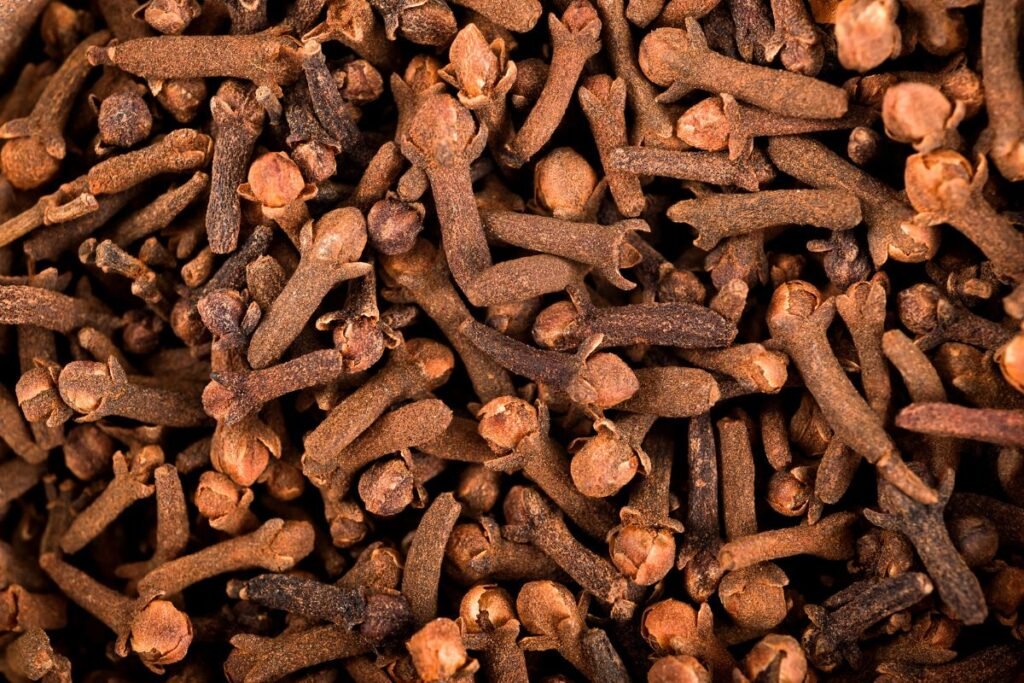
Clove Tea Strengthens The Bones
Low bone mass can lead to osteoporosis, which increases bone fracture risk. The mineral manganese is essential for bone health during bone formation. Cloves are rich in it. One teaspoon (2 grams) of ground cloves contains as much as 55% of the daily intake. An animal study found that taking manganese supplements for 12 weeks increased bone mineral density and strength.
So far, research on the effects of cloves on bone mass is limited to animal studies and test-tube studies. Human studies should be conducted to confirm the beneficial effects of cloves.
Cloves: for The Treatment of Stomach Ulcers
Research has shown that compounds in cloves can help treat stomach ulcers. A reduction in the stomach’s protective lining usually causes that illness, either due to factors such as stress, infection, or genetics. Studies have shown that the essential oil in cloves can increase gastric mucus production. It acts as a barrier to help prevent stomach lining erosion, which causes digestive acids.
How to Check The Quality of Raw Cloves
You should make clove tea from good-quality raw materials. There is one way to check the freshness of cloves. When you add quality cloves to boiling water, they float upright or sink to the bottom of the container. If the cloves float horizontally on the surface, they are not consumable.
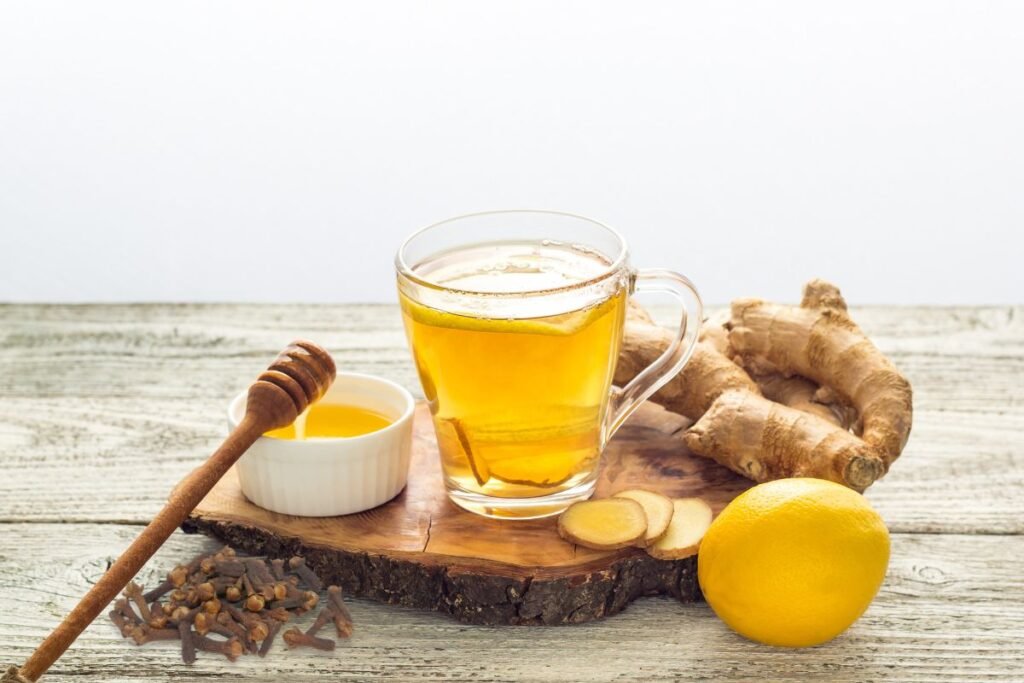
Ginger and Clove Tea Benefits for Colds
Ginger and clove tea benefits as a remedy for coughs and relieves sore throats. It also strengthens the immune system. Drink it two times a day.
You will need:
- 1 teaspoon of black tea
- 2 cloves
- 3 cm of fresh ginger
- 50 ml of milk
- 300 ml of water
Preparation:
Bring all the ingredients except the milk to a boil and leave to infuse for 15 minutes. Warm the milk and pour it into the tea. You can strain the tea and sweeten it with a teaspoon of honey before drinking.
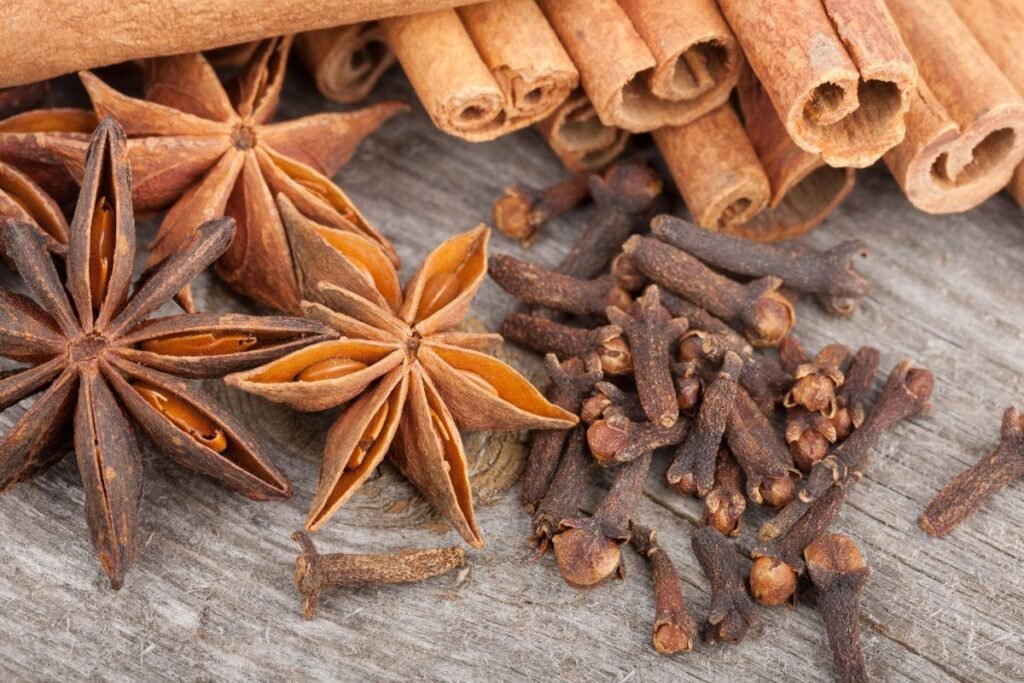
Clove and Cinnamon Tea with Lemon, and Black Pepper
This spice and clove tea benefits lower blood glucose levels and is just as tonic as coffee. Feel free to make it in the morning, but avoid it in the evening. It disturbs your restful sleep.
You will need:
- 2 cloves
- a pinch of ground black pepper
- 1 tbsp. of lemon juice
- a pinch of cinnamon
- 300 ml of water
Preparation:
Cover all the ingredients with boiling water and leave to infuse for a few minutes.
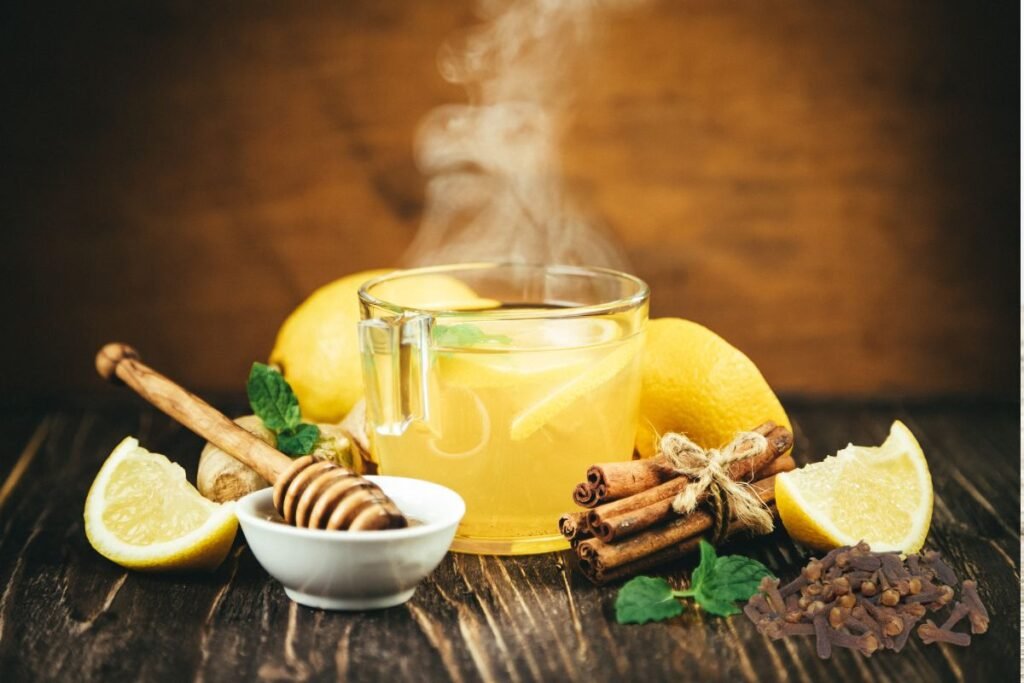
Clove and Lemon Tea
Another delicious tea option with many beneficial properties is clove and lemon tea. It is particularly suitable when you feel the first symptoms of a cold.
You will need:
- 200 ml of water for syrup
- 500 ml of boiling water for the tea
- 4 cloves
- 1 tablespoon of sugar
- 2 tablespoons of lemon juice
- 1 tbsp. black tea
- honey to taste
Preparation:
Make a syrup with honey, sugar, and water. Simmer it for 10 minutes. Cover the tea with boiling water and leave it to steep for about 7 minutes. Strain the tea for 7 minutes. Pour the tea and lemon juice into the prepared syrup, adding honey.
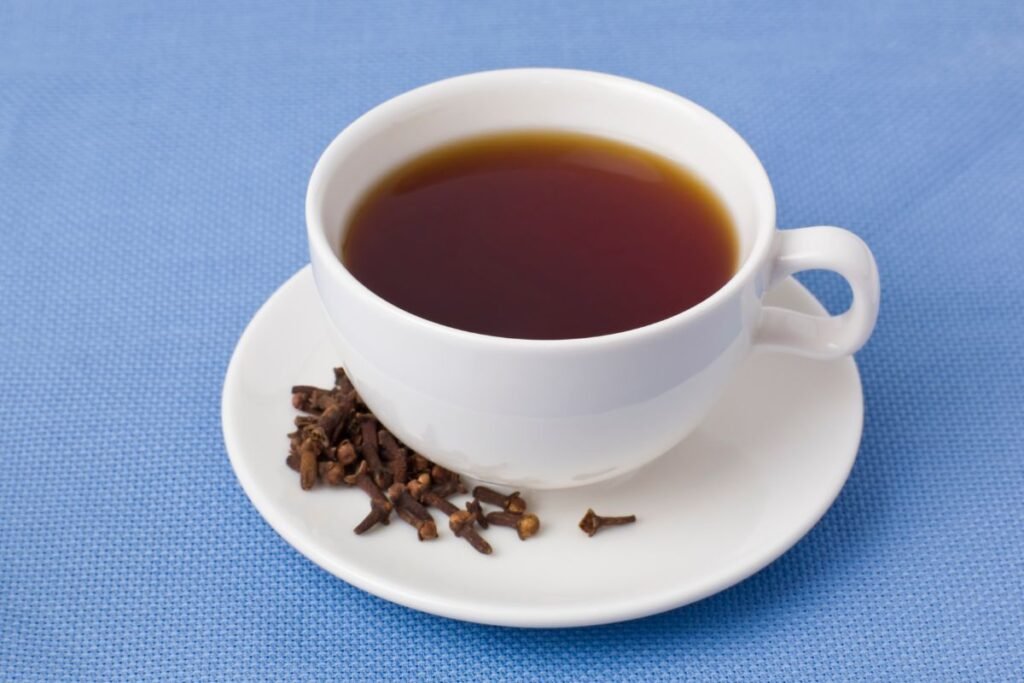
Clove Decoction for Atherosclerosis with Honey
Take two teaspoons of the decoction before each meal (3–4 times a day) to normalize blood lipid levels and reduce the risk of atherosclerosis. Continue the treatment for two months. There is no maximum duration.
You will need:
10 g cloves
200 ml of water
200 g honey
Preparation:
Pour hot water over the cloves, boil over low heat, and leave to simmer for 40 minutes after removing them from the stove. The decoction should cool down to 40 degrees. Strain the decoction through several layers of cheesecloth, and stir well after adding the honey.
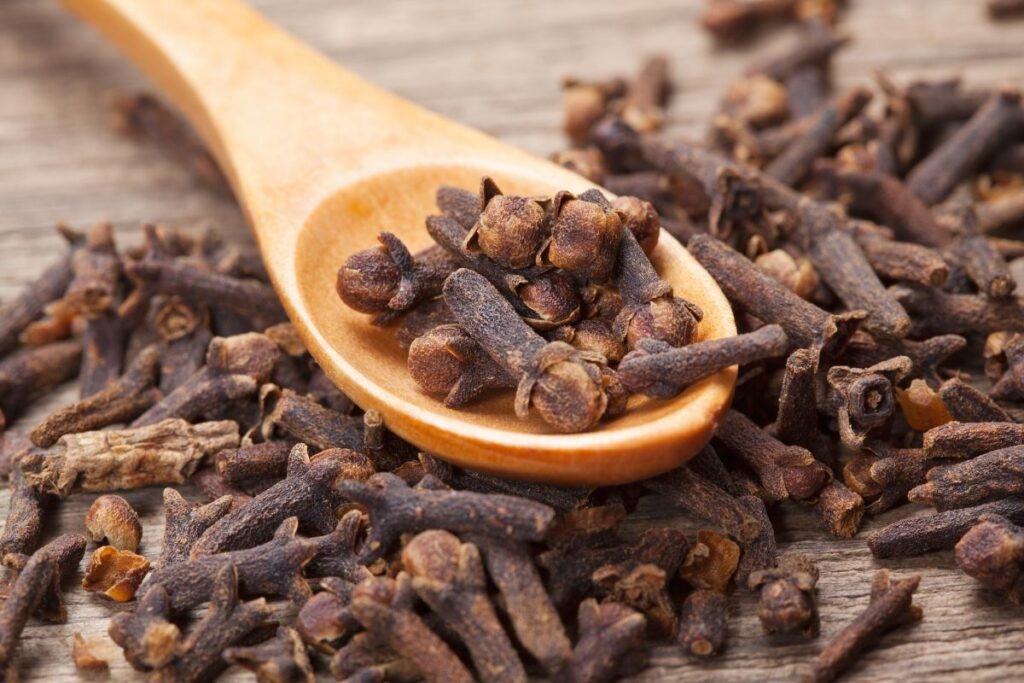
Possible Side Effects of Cloves
Despite their many benefits, clove tea and spice are not for everyone. Some people should avoid them:
- Pregnant and lactating women,
- Children under two years of age,
- Those with high blood pressure,
- With gastritis,
- With hyperacidity.
Final Thoughts
If you are planning to consume clove tea, bear in mind not to consume it in large quantities. A couple of cups of clove tea a day is sufficient. Of course, you should consult your doctor about using cloves for medicinal purposes.
Sources:
https://www.vle.lt/straipsnis/gvazdikeliai/
https://www.healthline.com/nutrition/benefits-of-cloves
Researches:
https://fdc.nal.usda.gov/fdc-app.html
https://pubmed.ncbi.nlm.nih.gov/17092827/
https://pubmed.ncbi.nlm.nih.gov/12505649/
https://pubmed.ncbi.nlm.nih.gov/16190627/
https://pubmed.ncbi.nlm.nih.gov/20013178/
https://www.ncbi.nlm.nih.gov/pmc/articles/PMC4132639/
https://pubmed.ncbi.nlm.nih.gov/22292639/
https://pubmed.ncbi.nlm.nih.gov/21939359/
https://pubmed.ncbi.nlm.nih.gov/8215554/
https://www.ncbi.nlm.nih.gov/pmc/articles/PMC3769004/
https://www.ncbi.nlm.nih.gov/pmc/articles/PMC4095623/
https://pubmed.ncbi.nlm.nih.gov/24611461/
https://pubmed.ncbi.nlm.nih.gov/8645503/
https://www.ncbi.nlm.nih.gov/pmc/articles/PMC1378621/
https://pubmed.ncbi.nlm.nih.gov/28338397/
https://pubmed.ncbi.nlm.nih.gov/18330520/
https://pubmed.ncbi.nlm.nih.gov/21140134/
Associative photos from © Canva.
